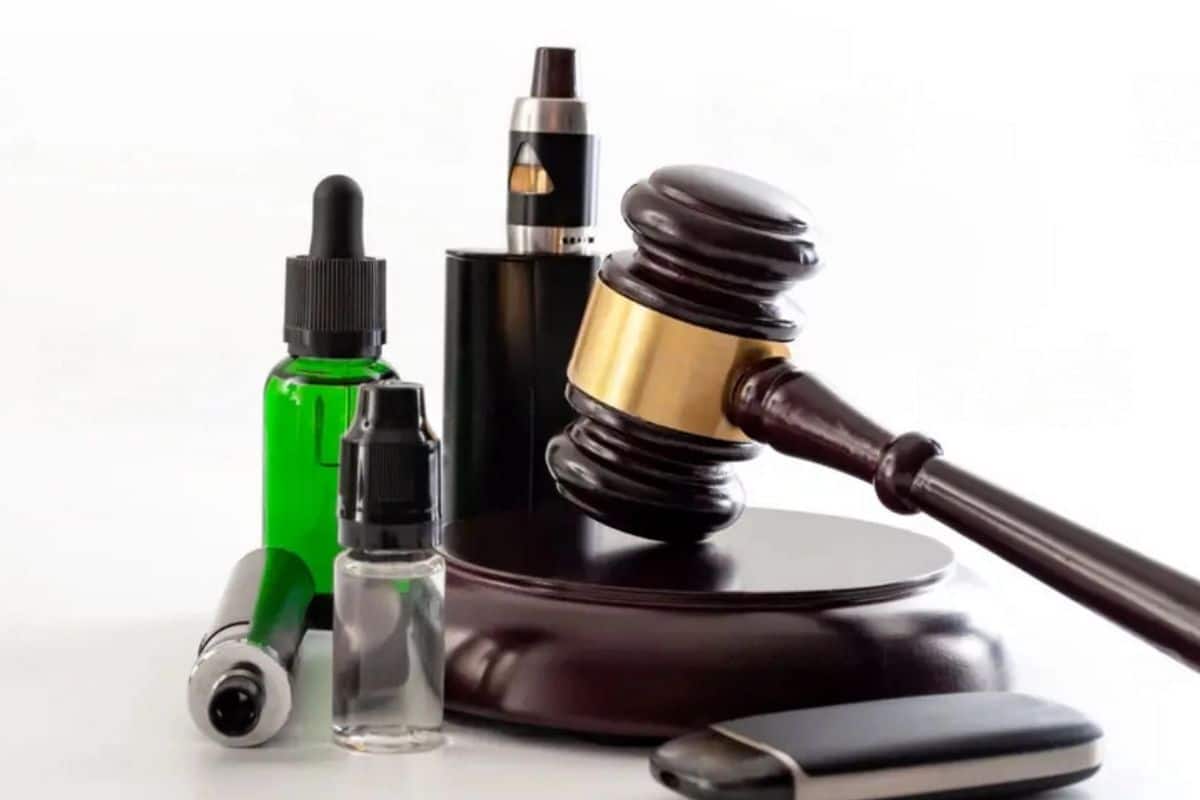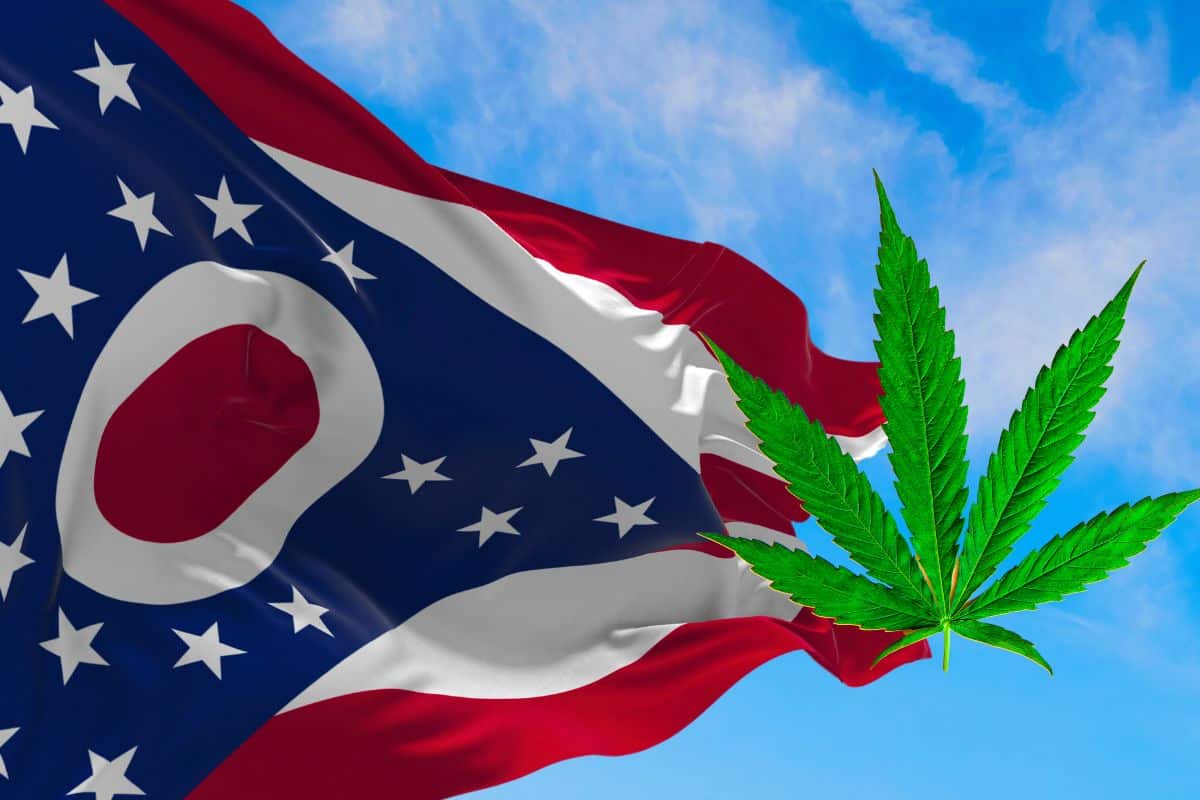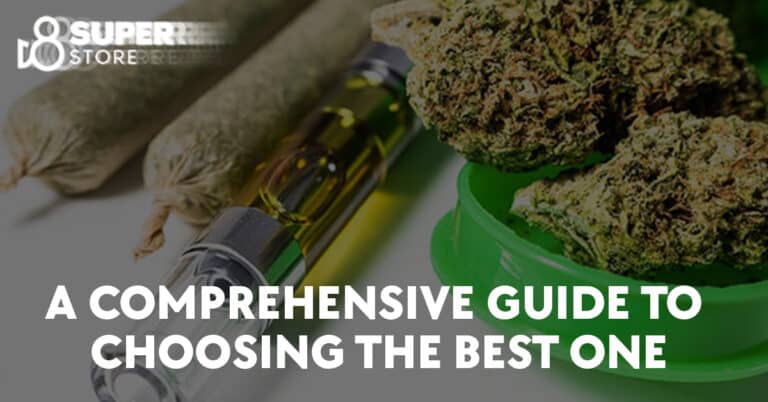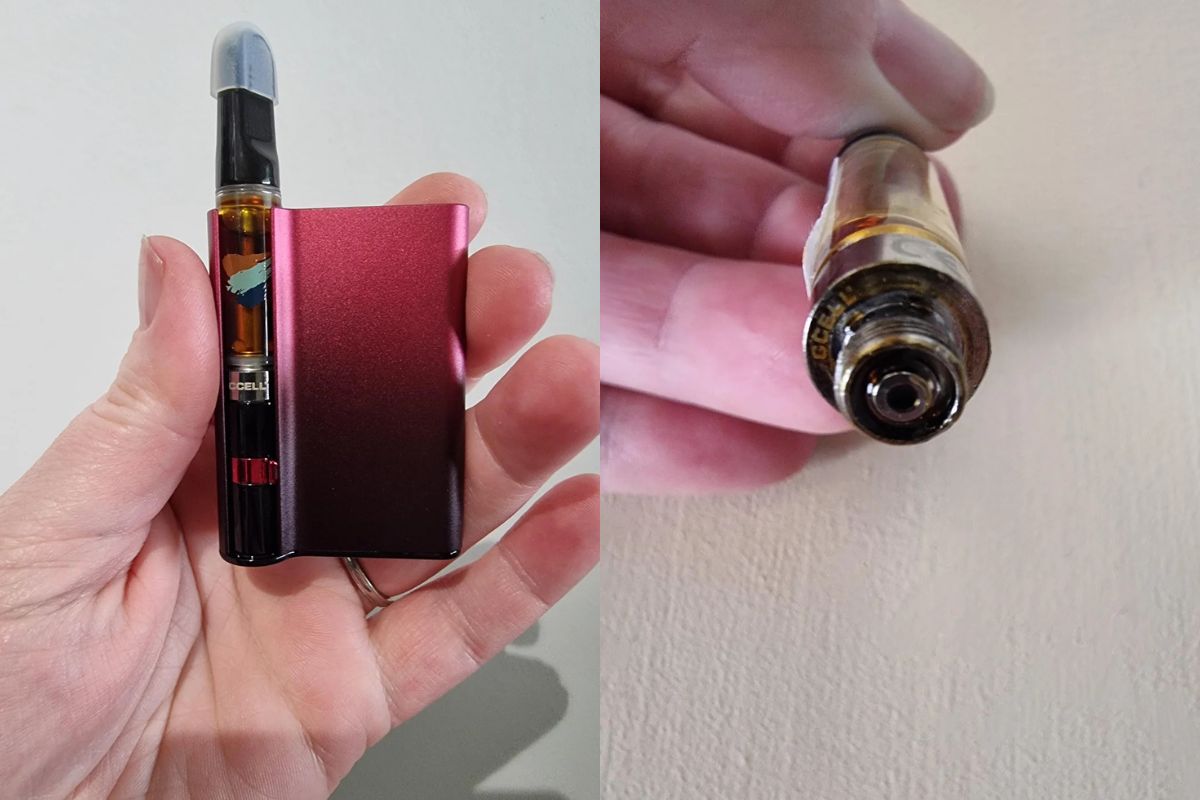Is Delta 9 Legal in Ohio? A Comprehensive Overview
Recently, folks have been diving into the wonders of the cannabis plant, especially praising its health perks. There’s a part called **delta-9-tetrahydrocannabinol** – but let’s just say **Delta-9 THC** to keep things easy – that really steals the show because it makes you feel awesome whenever you enjoy some weed. With the rules about cannabis always doing cartwheels in the U.S., it’s super important to stay sharp unless you’re looking for trouble. This piece of wisdom is a must-have for anyone wanting to keep smart about cannabis rules and steer clear of any legal messes. Keep your gaze here, and you’ll discover how to keep things cool with the law and savor your high without any bother.
As for Ohio, the legal status of Delta-9 THC is determined by its source and how it is used in various products. In general, Delta-9 THC derived from hemp containing less than 0.3% THC is considered legal under federal law, as per the 2018 Farm Bill. Nevertheless, state-specific regulations may differ, and it is crucial to stay informed about any changes that may impact legality in Ohio. Additionally, it is important to mention that Ohio’s medical marijuana program allows for the use of Delta-9 THC for patients with qualifying conditions – these patients must follow program guidelines and possess an approved Medical Marijuana Card.
Delta 9: An Overview

https://www.youtube.com/watch?v=y3bqfSJugoU&embed=true
To begin with, let’s discuss what Delta 9 is and why it’s important to know about its legality in Ohio. Delta 9, officially known as Delta 9-tetrahydrocannabinol, is the primary psychoactive compound found in cannabis plants. This compound is responsible for the “high” or euphoric sensations experienced when consuming cannabis products. There are actually several types of THC, but Delta 9 is the most well-known and prevalent one.
In recent years, there has been a growing interest in the medicinal use of cannabis and its derivatives. As such, the legal status of Delta 9 and other cannabinoids has become a topic of discussion and debate. From a medical perspective, Delta 9 is known to have some benefits, such as pain relief, anti-nausea effects, and appetite stimulation. These medicinal properties have prompted many jurisdictions to reconsider their stance on cannabis products containing Delta 9.
Now that we have a better understanding of Delta 9 and its significance, it’s important to examine its legal status in Ohio. Legislations and regulations surrounding cannabis products, especially those containing Delta 9, can vary greatly from state to state. As a result, it’s crucial to be informed about the local laws in order to avoid potential legal issues. In Ohio, the specific regulations regarding Delta 9 and other cannabis-derived substances will determine their accessibility, prescription requirements, and more.
In conclusion, understanding the legal status of Delta 9 in Ohio is essential for those who wish to use cannabis products for medicinal or recreational purposes. By being informed about the laws surrounding Delta 9 and other cannabinoids, individuals can safely and responsibly navigate the complex world of cannabis.
Current Legal Status in Ohio

In Ohio, the legal landscape for delta-9-tetrahydrocannabinol (THC) primarily revolves around the distinction between hemp-derived products and marijuana. After the 2018 Farm Bill was passed, hemp-derived products containing less than 0.3% delta-9 THC were deemed legal under federal law. As a result, Ohio aligned its regulations accordingly, leading to the legalization of hemp products in the state, including delta-8 THC.
It’s essential to note that while hemp-derived products with less than 0.3% delta-9 THC are legal, marijuana-derived products containing more than 0.3% delta-9 THC remain illegal under federal law. This means that the legality of delta-9 THC in Ohio ultimately depends on its source and concentration.
Consumers looking for delta-8 THC products within the state can find them relatively easily, as the compound is available for sale in various forms, including vapes, tinctures, and gummies. Additionally, some online outlets provide free shipping for delta-8 THC products to Ohio.
In summary, the current legality of delta-9 THC in Ohio hinges on its source and the concentration of the compound. Hemp-derived products containing less than 0.3% delta-9 THC are legal under both federal and Ohio state law, while marijuana-derived products with higher concentrations of delta-9 THC remain illegal. As for the availability of delta-8 THC, consumers can easily find these products in stores and online with providers shipping to Ohio.
Comparing to Other States
When it comes to the legality of Delta 9 THC, it’s essential to compare the laws in Ohio with those in other states across the USA. In this section, we will explore how various states regulate Delta 9 THC products and how this might affect consumers and businesses.
Delta 9 Laws Across USA
| State | Delta-9 THC Legal Status |
|---|---|
| Alaska | Legal for both medical and recreational use |
| California | Legal for both medical and recreational use |
| Colorado | Legal for both medical and recreational use |
| Florida | Legal for medical use |
| Massachusetts | Legal for both medical and recreational use |
| New York | Legal for medical use |
| Ohio | Legal for medical use |
| Texas | Illegal for recreational use, limited medical use |
Delta 9 THC is federally illegal in the United States, but some states have chosen to legalize it for medical or recreational use. For example, Saint Joseph, Missouri is one state where Delta 9 THC has been legalized for medical use. On the other hand, states like Lehighton, Pennsylvania have more restrictive laws surrounding Delta 9 THC for medical purposes.
While some states have a more open approach to Delta 9 THC, others enforce strict limitations on its sale and consumption. These inconsistencies among state regulations can lead to confusion for consumers and businesses dealing with Delta 9 THC products.
It’s important to note that the legal landscape surrounding Delta 9 THC is constantly evolving, with individual states continually updating and amending their regulations. As a result, it is crucial for those interested in Delta 9 THC to stay current with their local laws to stay compliant and avoid any legal issues.
In summary, Delta 9 THC laws vary greatly between states in the United States. While Ohio and other states maintain tight restrictions on Delta 9 THC, some states have embraced its benefits by legalizing it for medical or recreational use. Staying informed about the current regulations in your area is vital to ensure compliance and avoid legal issues.
Understanding the Ohio Medical Marijuana Program

The Ohio Medical Marijuana Program is a state-regulated system that allows eligible patients to obtain and use medical marijuana for specific medical conditions. In this section, we will discuss the eligibility requirements, cultivation, and dispensaries.
- Eligibility
To become eligible for the Ohio Medical Marijuana Program, patients must have been diagnosed with one of the qualifying medical conditions listed by the state. Examples of these conditions include cancer, Parkinson’s disease, multiple sclerosis, and chronic pain. Patients should consult with a certified physician, who must recommend medical marijuana as a treatment option. After the recommendation, patients must apply for an Ohio Medical Marijuana Patient Registry card, which allows them access to medical marijuana dispensaries in the state.
- Cultivation
In Ohio, the cultivation of medical marijuana is highly regulated. Cultivators must obtain a license from the Ohio Department of Commerce, which oversees the operations of cultivators. There are two types of licenses: Level I and Level II. Level I cultivators are permitted to operate large-scale facilities, while Level II cultivators manage smaller-scale operations. Strict guidelines must be followed to ensure the safety, security, and quality of the product, including mandatory testing and inspections by the state.
- Dispensaries
To access medical marijuana, patients need to visit a licensed dispensary in Ohio. These dispensaries are monitored by the Ohio Board of Pharmacy and must comply with state regulations to ensure that they maintain a safe and professional environment for patients. Medical marijuana products available at dispensaries include a variety of forms, such as edibles, oils, tinctures, and topicals. It is important to note that the Ohio Medical Marijuana Program does not permit the sale or consumption of smokable marijuana flower, as they focus on alternative methods for patients to use cannabis medicinally.
Potential Changes in the Future

As we explore the legal landscape of Delta-9 THC in Ohio, it’s important to acknowledge the sociopolitical shifts occurring on a national level. Currently, Delta-9 THC remains illegal under federal law, which has a significant influence on individual states like Ohio. However, there have been discussions surrounding potential changes in law to accommodate the growing demand for cannabis products.
Over the past few years, we have observed a trend toward the legalization of cannabis products. Various states have moved to legalize the use of medical and recreational marijuana, while others have allowed the sale of CBD products derived from hemp. This indicates evolving perspectives on cannabis and its potential benefits. As attitudes change, it’s possible that the federal government and states like Ohio may be influenced to revise their stance on Delta-9 THC.
It’s crucial for us to stay informed about potential policy changes and their implications. For instance, the legalization of Delta-9 THC in Ohio could lead to an increased focus on research and development in the cannabis industry. This would lead to a better understanding of the chemical’s medical applications and potential mental health outcomes.
Furthermore, if Delta-9 THC were to become legal in Ohio, it’s crucial to consider the potential impact on its economy. The cannabis industry has the potential to create jobs, generate tax revenue, and contribute to the state’s overall growth. However, such potential changes also come with challenges like regulation, law enforcement, and ensuring safe access to the products.
Given these possibilities and complexities, it’s essential for us to remain aware of emerging trends and evolving policy landscapes. By staying informed, we can navigate the ever-changing world of cannabis and its associated legal implications in Ohio and beyond.
Frequently Asked Questions
Is hemp-derived Delta-9 allowed in Ohio?
Yes, hemp-derived Delta-9 is allowed in Ohio as long as it meets specific regulations set within the state. These regulations include staying under the legal limit for THC content, which is 0.3% or less on a dry weight basis.
What is the legal status of Delta 9 in Dayton, Ohio?
Delta 9 THC has the same legal status in Dayton, Ohio, as it does in the entire state. If it comes from hemp with a THC content under 0.3%, it is permitted. However, any Delta 9 derived from marijuana with a THC content exceeding 0.3% is considered illegal.
How does Delta 9 compare with Delta 8 and Delta 10 in Ohio?
Delta 9, Delta 8, and Delta 10 are all cannabinoids found within the cannabis plant. While they share similarities, each compound has different effects. Delta 9 has a psychoactive effect, while Delta 8 and Delta 10 provide more subtle sensations. In Ohio, all three compounds are legal if derived from hemp and contain a THC content of 0.3% or less.
When did Delta 9 become permitted in Ohio?
The legality of Delta 9 in Ohio follows the 2018 Farm Bill, which legalized industrial hemp and its derived products containing less than 0.3% THC. This includes hemp-derived Delta 9 THC, making it permitted across the state since then.
Are Delta 9 gummies legally available in Columbus, Ohio?
Delta 9 gummies are legally available in Columbus, Ohio, as long as they meet the state’s regulations. They must be derived from hemp and contain no more than 0.3% THC. You can find a variety of Delta-8 products online that provide similar effects.
What are the regulations for Delta 9 products in Ohio?
The regulations for Delta 9 products in Ohio closely follow the federal guidelines set by the 2018 Farm Bill. Delta 9 is permitted if it comes from industrial hemp and contains a THC content of 0.3% or less on a dry weight basis. For marijuana-derived Delta 9 with a THC content above 0.3%, it is considered illegal and subject to state marijuana laws.







